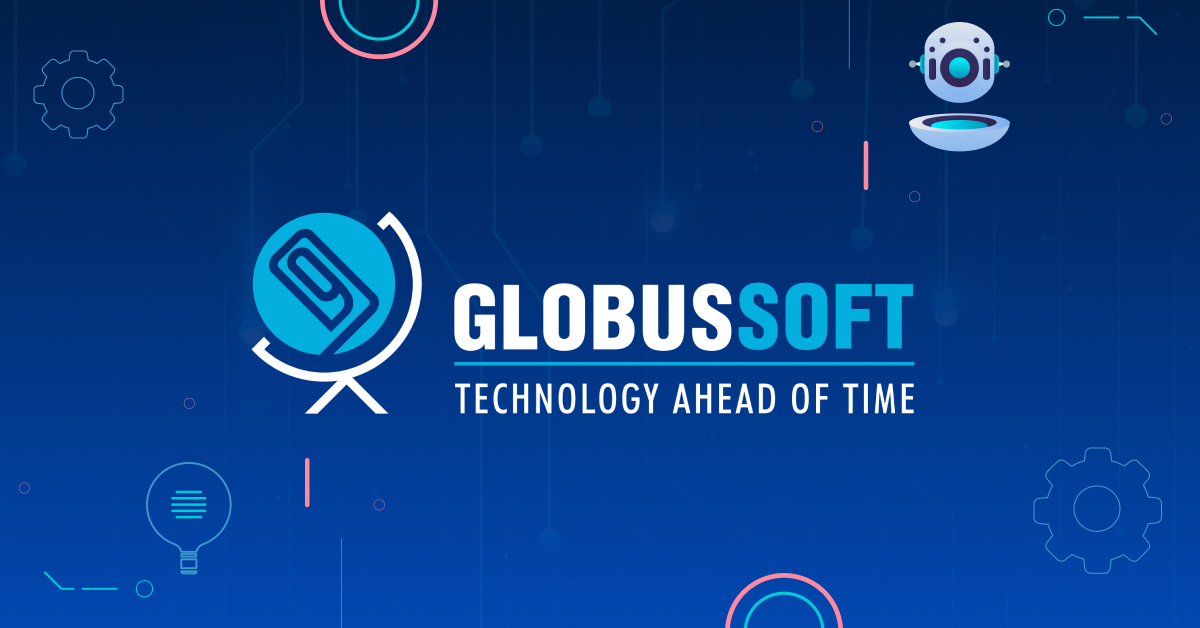
Real estate has always been an industry built on relationships, trust, and accurate information. Yet, as property transactions grow more complex, traditional methods often fall short in delivering the speed and precision modern buyers and sellers expect. This is where artificial intelligence for real estate steps in—not as a replacement for professionals, but as a partner that makes processes smarter, faster, and more reliable. From property valuation to marketing, AI is reshaping how agents, investors, and clients interact with the housing market.
What makes this shift exciting is the way AI integrates into every aspect of the business. Whether it’s improving how properties are priced, helping buyers experience homes virtually, or making transactions smoother, the opportunities are limitless.
However, these opportunities only make sense when explored individually. So, let’s begin with the foundation of every property deal—valuation—and see how AI changes the way homes are priced before moving to the other applications that complete the picture.
Listen To The Podcast Now!
Smarter Property Valuation
 Pricing a property has always been one of the trickiest parts of real estate. Traditionally, it relied on an agent’s experience or comparisons with recent sales. But these methods often left room for error. With artificial intelligence for real estate, pricing becomes far more accurate. By analyzing thousands of data points—from location and amenities to past transactions and neighborhood trends—AI generates real-time valuations that are precise and unbiased.
Pricing a property has always been one of the trickiest parts of real estate. Traditionally, it relied on an agent’s experience or comparisons with recent sales. But these methods often left room for error. With artificial intelligence for real estate, pricing becomes far more accurate. By analyzing thousands of data points—from location and amenities to past transactions and neighborhood trends—AI generates real-time valuations that are precise and unbiased.
This not only benefits sellers, who want competitive prices, but also buyers, who gain confidence that they’re not overpaying. For agents, it’s an advantage that builds credibility and speeds up decision-making. Once valuations are handled with such efficiency, the next natural question is: how can AI help buyers truly see the value in a property? That’s where virtual tours come in.
Immersive Virtual Tours
Buying a property without seeing it in person once seemed impossible. Today, advanced virtual tours powered by AI and augmented reality make it a practical option. These tours don’t just offer a 360-degree view; they let buyers walk through rooms, change wall colors, or even move furniture around virtually. AI adds another layer by adjusting lighting to show how the home looks at different times of day.
For international buyers or clients unable to travel, this creates a life-like experience that saves time and effort. It also helps agents market properties more effectively to a wider audience. Once potential buyers are hooked with immersive tours, the next challenge is handling paperwork quickly and accurately—something AI handles just as effectively.
Automated Document Management
 Contracts, leases, and agreements are the backbone of real estate deals, but they can also be overwhelming. Errors in contracts can delay or derail transactions. AI streamlines this by drafting, reviewing, and comparing documents with incredible speed. Natural language processing identifies missing clauses, checks for inconsistencies, and ensures compliance with real estate laws.
Contracts, leases, and agreements are the backbone of real estate deals, but they can also be overwhelming. Errors in contracts can delay or derail transactions. AI streamlines this by drafting, reviewing, and comparing documents with incredible speed. Natural language processing identifies missing clauses, checks for inconsistencies, and ensures compliance with real estate laws.
This efficiency means deals close faster and with fewer risks of legal complications. While this may sound like a purely back-office function, the ripple effect is clear: smoother paperwork leads to faster closings, which in turn improves client satisfaction. But beyond documents, professionals also need foresight—something predictive analytics delivers.
Predictive Market Insights
Markets move quickly, and staying ahead requires accurate forecasting. AI-driven analytics take into account historical data, economic indicators, and even policy changes to predict demand, rental income, and property appreciation. This predictive power helps investors make informed choices about where and when to buy, sell, or hold properties.
By spotting undervalued areas or emerging neighborhoods, real estate professionals can reduce risks and maximize returns. The ability to predict the future gives agents and investors a new edge. Yet, predictions only matter if agents can connect with the right clients at the right time. That’s why AI in marketing and lead generation deserves attention next.
Lead Generation And Personalized Marketing
 One of the most valuable uses of AI in real estate lies in how it transforms lead generation. Instead of relying on cold calls or generic ads, AI systems study customer data to understand budgets, preferences, and behaviors. This allows agents to create highly targeted campaigns that reach the right audience at the right time.
One of the most valuable uses of AI in real estate lies in how it transforms lead generation. Instead of relying on cold calls or generic ads, AI systems study customer data to understand budgets, preferences, and behaviors. This allows agents to create highly targeted campaigns that reach the right audience at the right time.
From personalized email recommendations to automated ad content, AI ensures that every potential buyer feels seen and understood. For agencies, this means higher conversion rates and less wasted effort. The power of lead generation real estate is clear, but AI doesn’t just stop at bringing clients in—it also ensures they stay satisfied through efficient property management.
Simplified Rental And Property Management
Managing rentals involves endless tasks: screening tenants, collecting rent, handling maintenance, and ensuring compliance. Real estate AI simplifies all of this. AI tools can analyze tenant applications within seconds, automate lease renewals, and send payment reminders. Predictive maintenance ensures small issues are fixed before they become costly problems, keeping tenants happy and landlords profitable.
This efficiency allows property managers to focus more on growth strategies rather than routine work. With operations streamlined, the next logical step is ensuring clients always feel supported—which brings us to AI-powered customer service.
Personalized Customer Service
In real estate, communication is everything. Clients expect fast, accurate, and personalized responses. AI-powered chatbots and virtual assistants provide round-the-clock support, answering questions, booking viewings, and sharing property details instantly. These systems learn from every interaction, ensuring conversations feel more human over time.
Clients appreciate the immediacy, while agents gain time to focus on more complex negotiations. And speaking of client communication—this is exactly where conversational platforms like Globussoft come into play, making AI-driven interactions an asset every agent should consider.
How Globussoft Supports Real Estate Growth With AI Solutions?
Globussoft specializes in building automation-driven, AI-powered tools that simplify workflows for businesses across industries. For the real estate sector, where speed, personalization, and effective communication matter most, its solutions help professionals connect with clients faster, manage leads more efficiently, and create impactful marketing campaigns. With an emphasis on innovation and usability, Globussoft provides practical tools that adapt to the unique challenges of property sales and client engagement.
Here’s how Globussoft enhances real estate growth through artificial intelligence:
Smarter Ad Creation With AdsGPT
 One of Globussoft’s standout offerings is AdsGPT, an AI-powered ad creation tool designed to help real estate businesses craft compelling property ads effortlessly. In an industry where visuals and messaging play a critical role in attracting buyers and renters, AdsGPT makes it possible to create attention-grabbing campaigns within minutes.
One of Globussoft’s standout offerings is AdsGPT, an AI-powered ad creation tool designed to help real estate businesses craft compelling property ads effortlessly. In an industry where visuals and messaging play a critical role in attracting buyers and renters, AdsGPT makes it possible to create attention-grabbing campaigns within minutes.
With AdsGPT, real estate professionals can:
- Quickly design high-quality ad creatives tailored for platforms like Facebook, Instagram, and Google.
- Generate multiple ad variations to test what resonates most with potential buyers and sellers.
- Keep branding consistent while cutting down on design and production time.
- Align property listings with audience interests by leveraging AI-driven insights.
By integrating AdsGPT into their marketing process, real estate businesses gain a smarter way to showcase properties, attract quality leads, and maintain agility in a highly competitive space. It’s a practical solution for agents, agencies, and property marketers who want to scale their efforts with artificial intelligence for real estate without overwhelming their resources.
Conclusion
The real estate industry is no longer just about listings and open houses—it’s about data-driven decisions, predictive insights, and personalized experiences. By embracing artificial intelligence for real estate, professionals can stay ahead in a competitive market while saving time and boosting efficiency. From smarter lead generation to automated property valuations and marketing, AI is transforming how agents and investors connect with clients.
As adoption grows, those who integrate artificial intelligence for real estate into their workflows will see stronger engagement, better client satisfaction, and more consistent results. Whether you’re aiming to streamline daily operations or scale your business, AI provides the tools to move faster with precision.
Ultimately, the future belongs to professionals who leverage artificial intelligence for real estate, not just as a tool, but as a strategic partner in growth. It’s no longer a “nice-to-have”—it’s the edge that defines long-term success.
FAQs
- How does artificial intelligence for real estate improve property valuation?
It analyzes extensive market data, past sales, and neighborhood trends to provide accurate, real-time pricing without bias. - Can AI replace real estate agents?
No. AI supports agents by handling repetitive tasks and providing insights, but human expertise in negotiations and relationships remains vital. - How does AI help with lead generation real estate?
AI studies buyer behavior and preferences, creating personalized campaigns that reach the right prospects and improve conversion rates. - Is real estate AI affordable for small agencies?
Yes. Many tools are scalable, offering affordable solutions tailored to the size and needs of each agency. - What makes AdsGPT useful for real estate ads?
It generates optimized ad creatives quickly, supports multiple platforms, and helps agents run effective campaigns that attract serious buyers. - What is the future of AI in real estate?
AI will continue expanding into smart homes, blockchain transactions, and advanced conversational platforms, making the industry more connected and efficient.



